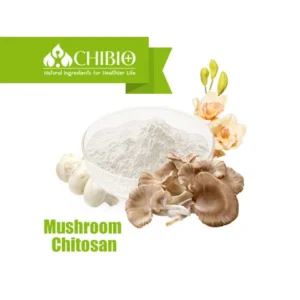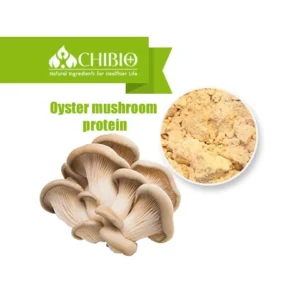Agaricus bisporus chitosan
Agaricus bisporus chitosan
Additional information
Product Details

What is chitosan?
Chitosan is a linear polysaccharide composed of randomly distributed β-(1→4)-linked D-glucosamine (deacetylated unit) and N-acetyl-D-glucosamine (acetylated unit).
Chitosan, sometimes known as deacetylated chitin, is a natural polycationic linear polysaccharide derived from partial deacetylation of chitin. Chitin is the structural element in the exoskeleton of insects, crustaceans (mainly shrimps and crabs), and cell walls of fungi (mushroom, Aspergillus niger), and the second most abundant natural polysaccharide after cellulose.
Chitosan is recognized as versatile biomaterials and a well-known organic polymer with well-documented characterization, including extended non-toxicity, low allergenicity, biocompatibility, and biodegradability, being classified by the US Food and Drug Administration as “generally recognized as safe” (Casettari and Illum, 2014) substance.

Why do we focus on vegetal chitosan?
There have been a number of statistics around the world in recent years about the vegan and vegetarian population.
According to some sources, the number of vegans in the world has increased by 350% over the past decade. 3% of the US population and 1% of the UK population were found to be vegan.
In Germany, this ratio is about 3%. As the enrollment and survey conditions of each country differ, it is difficult to determine how many people are vegan in the world.
In addition, there are about 5 of 100 people affected by crustacean allergy, which means about 300 million people need non-crustacean-ingredients food.
Chitosan was one kind of the main ingredient used for food preservatives, winemaking fining agents, cosmetics, fat binders, health supplements, and other pharmacy or food fields. Usually, chitosan was derived from crustaceans such as crab, shrimp, lobster.
It might be not suitable for vegans, vegetarians, and those people with allergic to crustacean materials. So vegetal chitosan will solve this problem.

What are advantages of vegetal chitosan?
1.100% Naturally non-animal sourced ( Mushroom / Aspergillus Niger )
2. Suitable for vegan, vegetarians, and those with allergic to crustacean material
3. Non-allergenic, Non-GMO, Cruelty-Free, Antimicrobial
4. Biodegradable, Non-toxic, Gluten-free
5. Renewable, Inexhaustible
6. Traceable Consistent quality

Which application fields are vegetal chitosan used for?
The interesting characteristics of chitosan such as biocompatibility, non-toxicity, low allergenicity, and biodegradability allow it to be used in various applications.
Besides, chitosan is reported to have other biological properties, such as antitumor, antimicrobial, and antioxidant
activities. The degree of deacetylation, which is described by the molar fraction of deacetylated units or percentage of
deacetylation, and the molecular weight of chitosan, were found to affect these properties.
Vegetal chitosan has been widely used for different biological and biomedical applications recently due to its unique
properties. For instance, it can be used in food preservatives, winemaking as a fining agent, cosmetics, fertilizer, water treatment,wound-healing materials, obesity treatment, and as a scaffold for tissue engineering.
There is increased interest in biomedical applications of chitosan and its derivatives and significant development have been achieved. It can be reflected in the increasing number of related publications throughout the years.







